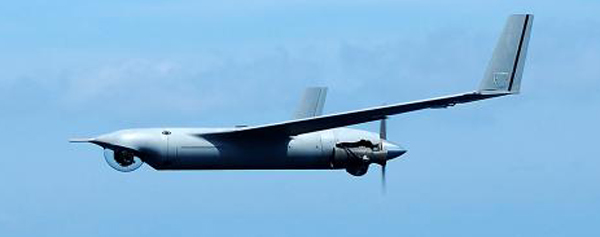. announced that its ScanEagle unmanned aircraft system (UAS) successfully completed its first hydrogen-powered fuel cell flight during a two-and-a-half-hour flight test. The hydrogen-powered fuel cell solution was implemented as a modular upgrade to the runway-independent, expeditionary Group 2 ScanEagle UAS.
The collaboration between Insitu, Naval Research Laboratory (NRL) and United Technologies (UTC) took UTC’s 1500 Watt (2 HP) fuel cell and integrated it with NRL’s hydrogen fueling solution into a ScanEagle propulsion module. Then, in just three days, that propulsion module was fully integrated into the ScanEagle UAS at Insitu’s facilities in Bingen, Wash.
“Fuel cell technology contributes to Insitu’s goal of increasing reliability and reducing operating costs. Additional benefits of the technology are an increase in ScanEagle’s payload capacity and a simplification in support logistics,” said Insitu President and CEO Steve Morrow.
“We hit all expected performance targets, and data from the flight test will drive further system improvements,” added Insitu Chief Technology Officer Charlie Guthrie.
The approach used in the hydrogen-powered fuel cell solution costs a fraction of the cost of today’s gas and heavy fuel solutions in UAS. The solution also weighs less than traditional engines. Reducing aircraft weight increases payload capacity, so propulsion approaches like this will enable ScanEagle to carry more payload while reducing costs.
“Fuel cell technology will improve significantly in the future,” said Insitu Chief Engineer Jeff Knapp. “Today’s internal combustion engines, especially two-stroke technology, are well optimized. Fuel cell technology has room for growth, and that will provide an opportunity for continued efficiency improvements and weight reduction.”
The Department of Defense recently laid out its vision for the role that fuel cells will play in improving mission capability. The fuel-cell powered flight of ScanEagle, demonstrates Insitu’s continuing commitment to respond to the needs of its customers by introducing new technology into a modular system designed for expansion and growth.
Looking forward, Insitu is collaborating with the Air Force Research Lab to flight test a fuel cell on the Integrator UAS later this year.
Source: Press Release

